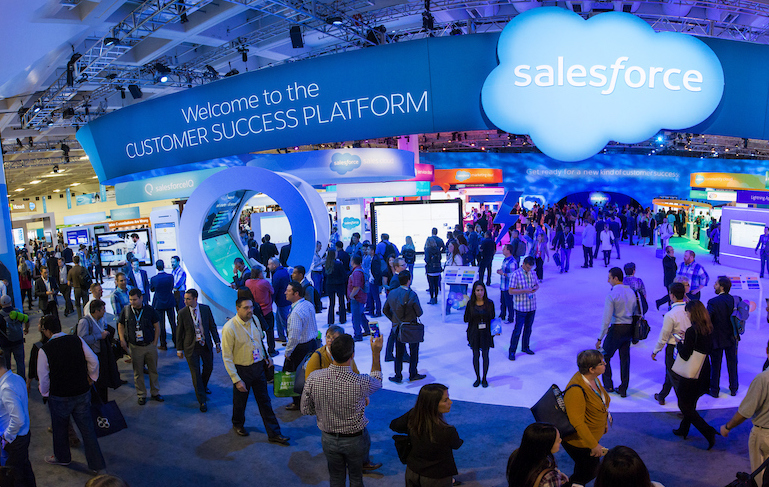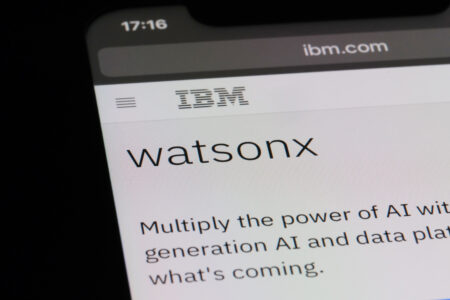In the Cloud Wars, earnings calls have become not only a formal disclosure of financial results but also a window into the strategic heart, mind and soul of these deeply transformative and world-changing companies.
So I find it fascinating to observe the language leaders of the Cloud Wars Top 10 use as they make the case for why their company is uniquely attuned to what customers want and need in today’s hyperdynamic digital economy. Why their vision for the future is the right one to share. Why they’re perfectly positioned to help business customers not only survive but thrive in the world of tomorrow.
For example: Oracle and Salesforce offer a huge range of cloud services that are similar and that compete head-on. But the companies could not be more different in how they use the earnings-call platform and opportunity to showcase those attributes to customers, prospects and other key stakeholders.
A Contrast of Styles on Oracle Earnings Calls
Each quarter, Oracle chooses to have one of its co-CEOs read lengthy laundry lists of “customer wins.” Generally, the speakers refer to those companies as “logos.” In other words, a type of trophy for Oracle to put on a shelf and showcase.
Now, maybe that’s the right way to go. Maybe a fairly dry and fact-crammed presentation is the best way to deliver results to financial analysts. Chairman Larry Ellison takes a different approach. He always infuses some sense of grand vision into his comments. But Ellison’s air-time during prepared remarks is always just a fraction of that taken by co-CEOs Safra Catz and Mark Hurd.
Nevertheless, in the Q&A portion of the call, at least half of the questions are directed at Ellison. Because he actually goes beyond reading the roll-call list and shares some vision for where the company’s headed.
And in today’s high-change world, that’s what the marketplace values most.
A Vision for Customers from Salesforce
Conversely, Salesforce co-CEOs Marc Benioff and Keith Block take a dramatically different approach. Here are a few gems from Benioff from last week’s earnings call as he laid out the case for why his company will lead the customer-experience revolution:
“We’ve been very strategic in building out our Customer 360 platform. This is our vision that’s at the heart of what’s happening here in the Fourth Industrial Revolution. Everybody knows the Fourth Industrial Revolution is underway, and everyone and everything is getting connected.”
“With Customer 360, we’ve never been better positioned for the future. In fact, we’re just at the beginning of an enormous wave of digital transformation.”
“Salesforce is at the center of this massive shift because every digital transformation at every single one of these companies that we’re talking to begins and ends with the customer.”
“They need to personalize every customer experience, predict customer behavior, anticipate customer needs, build modern mobile apps quickly, and deliver the right services at the right time to any device.”
Pretty easy to understand what Salesforce is offering and why that’s important today, right?
An Emphasis on Relationships from Salesforce
And take a look at how co-CEO Block describes the new type of value customers are seeking from Salesforce. (Big hint: it’s *not* about products!)
“They’re asking us about the future of their industries. They’re asking us about their peers and their competitors and how they’re transforming. They’re asking us about best practices from other industries. And most importantly, they’re asking us about how to innovate.”
“The hundreds of customers that Marc and I meet with every quarter are looking for a vision and they’re looking for strategy that will help them propel their growth and to get closer to their customers.”
Block then goes on to mention some significant customers, but does so in the context of “relationships”—a two-way street. Contrast that with Oracle’s emphasis on “wins,” wherein the winner is definitely supposed to be Oracle, and possibly also the customer.
“Throughout the quarter, we continued to build out and strengthen our relationships with leading brands around the world. FedEx selected Salesforce in the quarter as the platform for their customer-service transformation.”
“We continue to expand our relationship with Marriott, one of the world’s great companies, which is using Salesforce to better anticipate the travel needs of each guest and then display relevant offers during that stay to provide more-personalized customer experiences.”
In the Hyper-Competitive Cloud Wars, Words Matter
Just words? A lot of fluff?
Doesn’t matter worth a damn?
Perhaps.
But today’s enterprise-technology deals are do-or-die for many businesses. And they are most definitely *not* one-off transactions. At their heart they are deeply two-way interactions. They are long-term strategic engagements. And they are predicated on trusted relationships, not product specs.
The #1 company in the Cloud Wars, Microsoft, is a master at this. On an earnings call last month, CEO Satya Nadella said this near the very top of his opening remarks:
“Every day we work alongside our customers to help them build their own digital capability — creating new businesses with them, innovating with them, and earning their trust. This commitment to our customers’ success is resulting in deeper partnerships, larger, multi-year cloud agreements and growing momentum across every layer of our differentiated technology stack… from application infrastructure, to data & AI, to business process, to productivity and collaboration.”
If you think that doesn’t make an impact on CXOs and board members betting their careers—and perhaps their companies—on the tech vendors they choose for mission-critical engagements, I suggest you think again.
Disclosure: at the time of this writing, Oracle was a client of Cloud Wars Media LLC.
Subscribe to the Cloud Wars Newsletter for in-depth analysis of the major cloud vendors from the perspective of business customers. It’s free, it’s exclusive, and it’s great!








